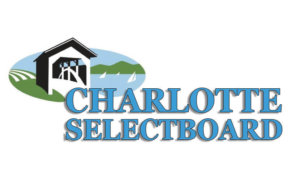Selectboard holds four executive sessions during meeting
Employee salaries and “potential litigation” discussions held from public view
At their over four-hour-long regular meeting on Monday, Oct. 11, the Selectboard went into executive session for four different agenda items.
 The first item listed on the agenda was “Request to revise compensation for certain Library employees based on tenure with the town.”
The first item listed on the agenda was “Request to revise compensation for certain Library employees based on tenure with the town.”
The item was not listed as an executive session on the meeting’s agenda.
The motion to go into executive session was made by Selectboard member Matt Krasnow to discuss “contracts and labor agreements with employees.”
“We’re talking about salaries, we’re talking about performance, and we’re talking about individuals,” board member Louise McCarren said.
After some discussion, Town Administrator Dean Bloch was not allowed in the executive session after he told the board that he was not employed with the town at the time salaries were established for the library employees.
“I have not been involved with previous executive sessions, but I have been involved in discussions with the parties,” Bloch said.
The board proceeded into an executive session with Charlotte Library Board Trustees Jonathan Silverman and Nan Mason. But the board and the library trustees came out of executive session after 20 minutes.
Chairman James Faulkner announced that nothing was accomplished due to technical difficulties.
Both Silverman and Mason were on Zoom, while the rest of the board, except for Krasnow, were in the Town Hall.
“Our agenda is full, and we just spent 20 minutes trying to connect,” Faulkner said. “We are going to schedule another time for this particular item.” However, the board did not schedule when the discussion would be held.
Afterward, Town Clerk/Treasurer Mary Mead questioned the board’s need to go into an executive session.
“Everybody’s salaries are very public,” Mead said. “It’s published in the town reports. It’s no secret about anything. Why can’t it just be a regular discussion?”
“Under Vermont statutes, we can go into executive sessions for contracts, labor relations and agreements for employees,” Faulkner said. “We’re just following the law.”
Further along in the meeting, the board went into three additional executive sessions that were listed on the meeting’s agenda.
The board went into executive sessions for “personnel issue update” and “potential litigation.”
No further details were listed on the agenda about the items and the board did not take any action after the two executive sessions.
The last executive session at the meeting, listed as “Legal consideration for moving to a Development Review Board,” lasted for more than an hour.
“For this one, the town attorney gave a two-part motion to offer attorney-client considerations,” Krasnow said.
He then read a two-part motion to go into the executive session.
“I move to find that premature general public knowledge of confidential attorney-client communications regarding the issue of potentially moving to a DRB would clearly place the Selectboard at a substantial disadvantage by potentially waiving the attorney-client privilege,” Krasnow said.
The motion was seconded by Faulkner and approved unanimously by the board.
“I move to have an executive session to consider confidential attorney-client communications made for the purpose of providing professional legal services to the Selectboard and invite the town attorney to join,” Krasnow said in his second motion.
Bloch was invited into the executive session.
The hour-plus long executive session resulted in no decisions made by the board.

